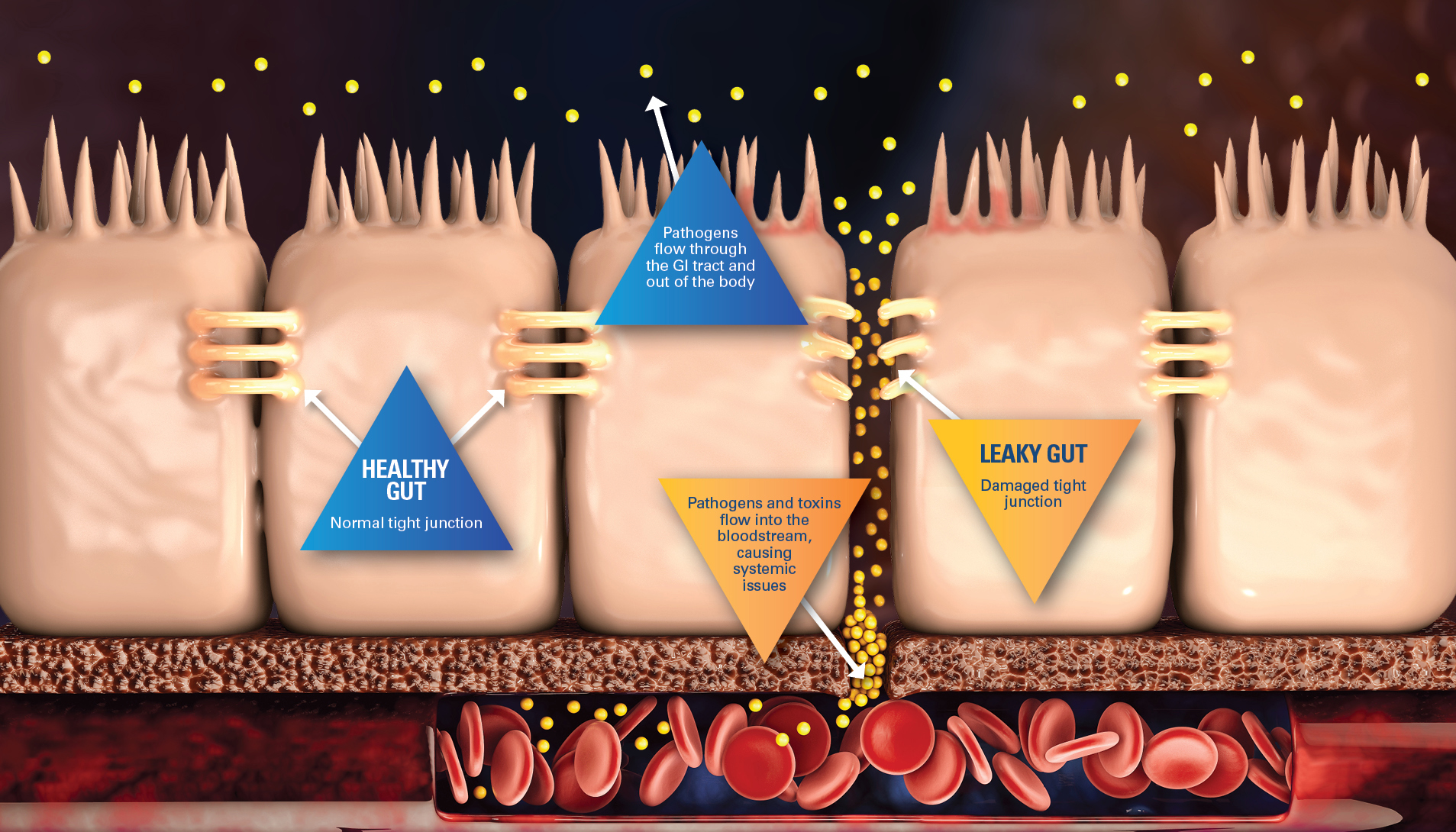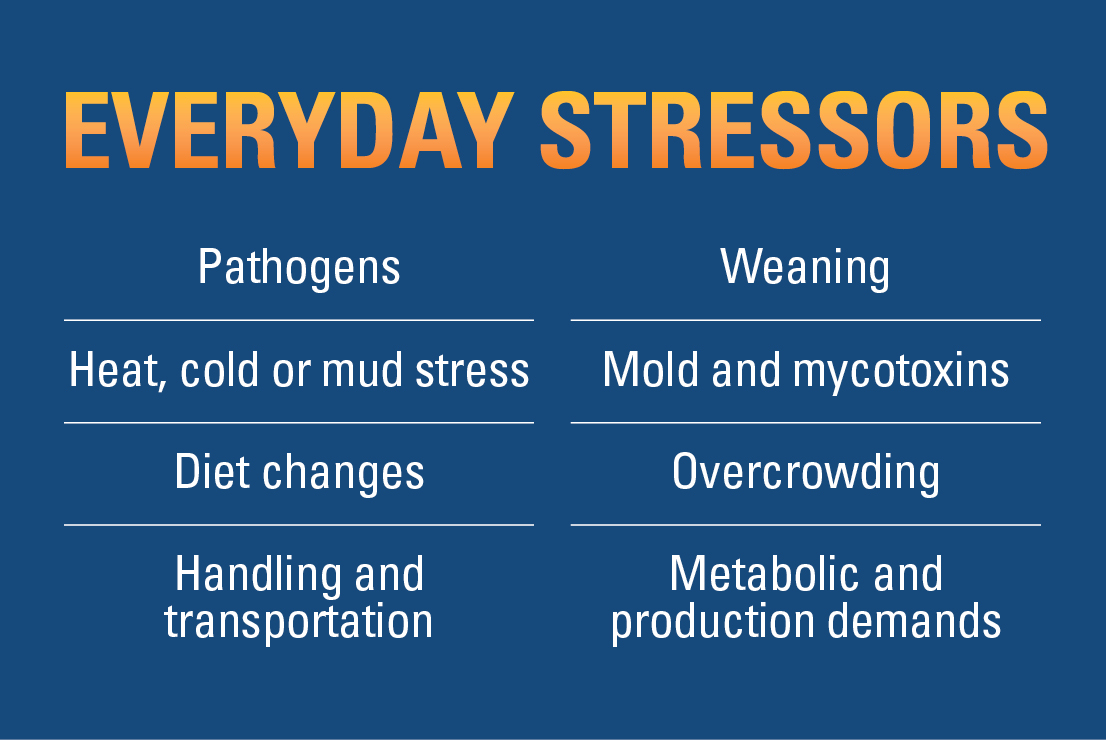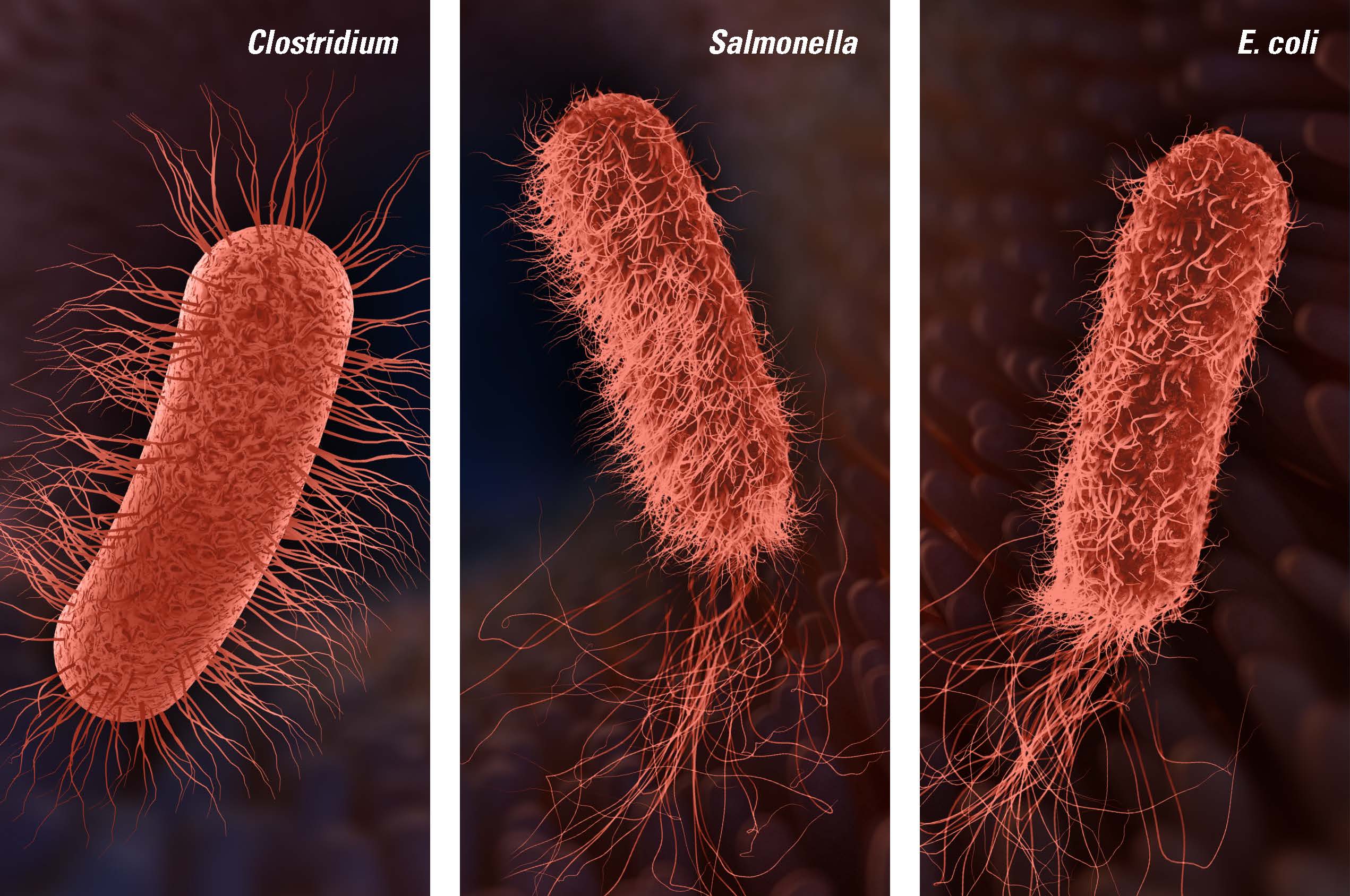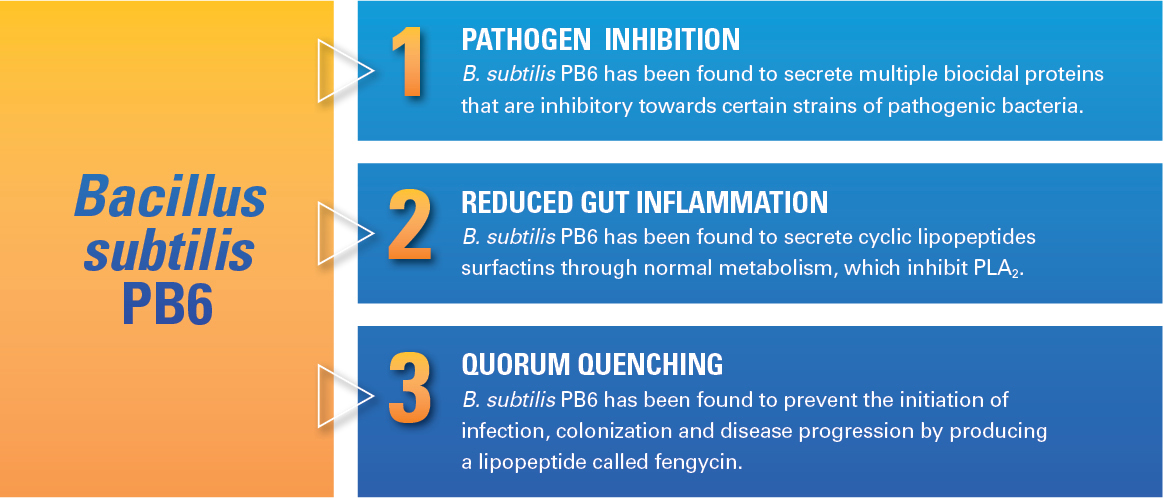The ruminant digestive system is as complex as it is important to beef and dairy production. Understanding how the gastrointestinal (GI) tract functions, how it contributes to overall ruminant health and what to do when it’s compromised are critical to the success of your herd. After all, a healthier GI tract helps improve performance, prevent leaky gut and mitigate stress — all of which lead to healthier cows and profits.
Understanding the GI tract
The function of the GI tract — primarily the villi in the small intestine — is to digest and absorb nutrients, defend against harmful pathogens, prevent harmful compounds from entering the host and maintain a balanced microbiome. Leaky gut occurs when a compromised GI tract lining allows harmful substances to be absorbed into the bloodstream, resulting in a variety of health implications.
A healthy gut:
- Breaks down nutrients for optimal absorption
- Promotes and maintains immune system health
- Maintains structural intestinal integrity
- Preserves the balance of microflora
A damaged GI tract, also known as leaky gut, could result in:
- An unbalanced microbiome, leading to a higher prevalence of enteric pathogens
- Reduced digestive and absorptive capacity
- Decreased intestinal integrity of the gut, allowing harmful pathogens and toxins to enter into the host, which can lead to both intestinal and systemic inflammation
- A compromised immune system





